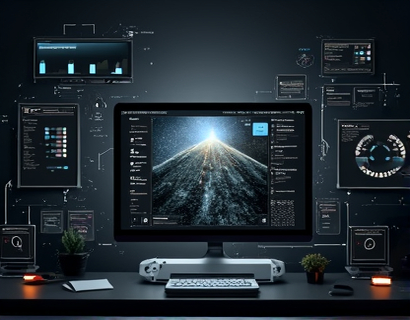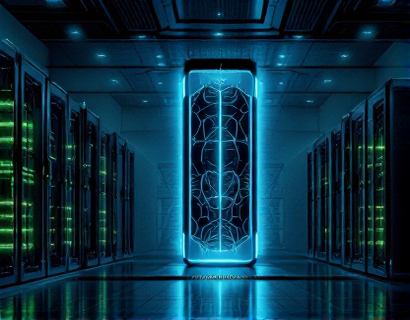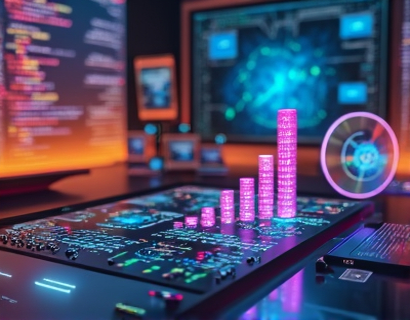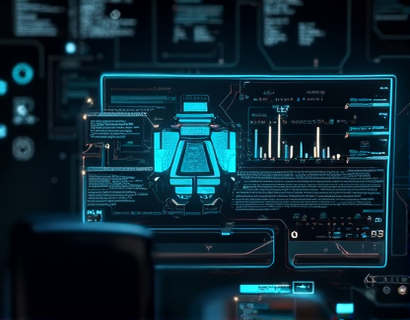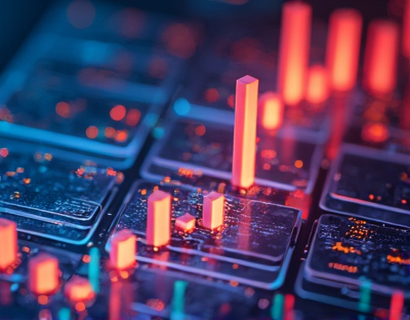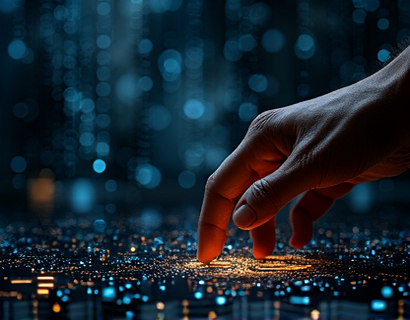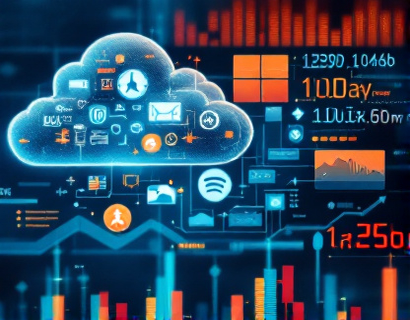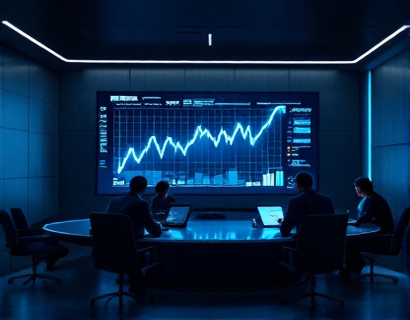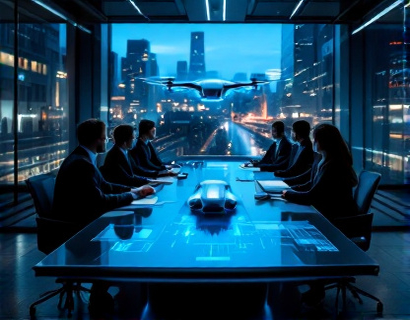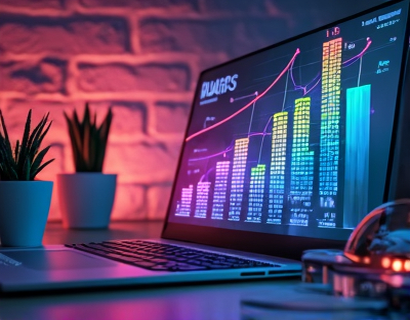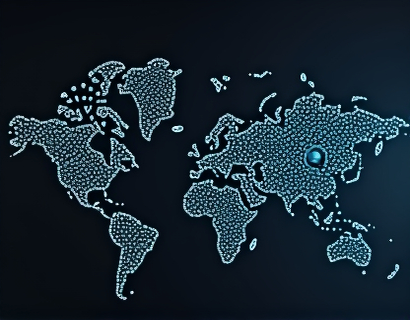Decentralized AI and Crypto: Revolutionizing Ucosystem Applications for Enhanced Digital Experiences
The intersection of decentralized technologies, artificial intelligence, and cryptocurrency is giving rise to a new era of digital applications that promise to transform user experiences across various sectors. This fusion is not just a technological advancement but a paradigm shift that is redefining how we interact with digital services. At the core of this revolution is the concept of Ucosystem applications, which leverage the power of decentralization, AI, and crypto to create more secure, efficient, and engaging digital experiences.
Decentralized applications, or dApps, operate on blockchain networks, eliminating the need for central authorities and intermediaries. This decentralized nature ensures greater transparency, security, and user control. When combined with AI, these applications gain the ability to learn from data, adapt to new inputs, and perform tasks that traditionally required human intervention. The integration of cryptocurrency further enhances this ecosystem by providing a decentralized and secure means of transaction and value exchange.
The synergy between decentralized AI and crypto is creating innovative solutions that were previously unimaginable. For instance, decentralized machine learning platforms allow for the training of AI models using data from multiple sources without compromising privacy. This is achieved through federated learning, where models are trained across multiple decentralized devices or servers holding local data samples, without exchanging them. This approach not only enhances data security but also improves model accuracy by leveraging diverse datasets.
One of the key benefits of decentralized AI applications is enhanced data privacy. Traditional AI systems often rely on centralized data repositories, making them vulnerable to breaches and misuse. Decentralized AI, on the other hand, distributes data across a network, reducing the risk of large-scale data leaks. Users maintain control over their data, deciding who can access it and for what purpose. This shift empowers individuals and fosters a more trustworthy digital environment.
Cryptocurrency plays a crucial role in this ecosystem by providing a medium of exchange that is both secure and transparent. Blockchain technology ensures that transactions are immutable and verifiable, reducing the risk of fraud and enhancing trust among users. Smart contracts, self-executing contracts with the terms directly written into code, automate and enforce agreements without the need for intermediaries. This not only reduces costs but also speeds up processes, making decentralized applications more efficient.
The application of decentralized AI and crypto extends beyond just data privacy and transaction security. It is revolutionizing various industries by offering more robust and user-centric solutions. In the healthcare sector, for example, decentralized AI can analyze medical data from multiple sources to provide more accurate diagnoses and personalized treatment plans. Patient data remains private, and the AI models are continuously improved through collaborative learning.
In the finance industry, decentralized finance (DeFi) platforms are leveraging AI to create more efficient and accessible financial services. AI-driven algorithms can predict market trends, optimize portfolios, and detect fraudulent activities in real-time. These services are available on a decentralized network, reducing the need for traditional banking infrastructure and lowering transaction costs for users.
The gaming industry is another area where decentralized AI and crypto are making significant impacts. Decentralized gaming platforms use blockchain to ensure fair play, reward players with cryptocurrency, and create unique in-game assets that can be owned and traded. AI enhances the gaming experience by generating dynamic content, adapting to player behavior, and creating more immersive environments.
For tech-savvy innovators and early adopters interested in cryptocurrency, AI, and decentralized applications, the potential of this ecosystem is vast. These individuals are at the forefront of exploring and developing new use cases that can further push the boundaries of what is possible. The community-driven nature of decentralized projects encourages collaboration and innovation, leading to rapid advancements and the emergence of new standards in the industry.
Platforms like the one described, which focus on marketing and connecting users with the latest advancements in decentralized technology, play a vital role in this ecosystem. By providing a centralized hub for information, resources, and community engagement, these platforms help demystify complex technologies and make them accessible to a broader audience. They facilitate the discovery of new applications and services, fostering a culture of experimentation and adoption.
The future of decentralized applications is promising, with ongoing research and development continuously expanding the capabilities of AI and crypto. As more organizations and individuals recognize the benefits of this fusion, we can expect to see a surge in the deployment of Ucosystem applications across various sectors. From smart cities to supply chain management, the potential applications are endless, and the impact on digital experiences will be profound.
In conclusion, the combination of decentralized AI and cryptocurrency is not just a technological trend but a fundamental shift in how we build and interact with digital systems. By prioritizing security, privacy, and user control, this ecosystem is paving the way for a more equitable and efficient digital future. As we continue to explore and harness the power of these technologies, the possibilities for enhanced digital experiences are truly limitless.







